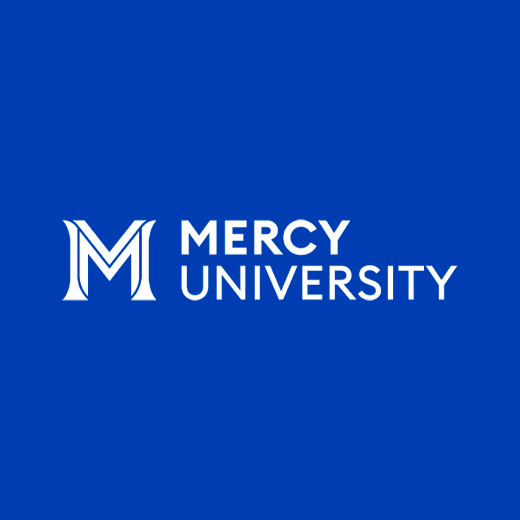School Psychology
- 66 Credits
- School of Social and Behavioral Sciences
- Westchester

School Psychology Overview
This nationally accredited program prepares graduates to work as school psychologists in elementary or secondary schools and in other exempt agencies. School psychologists collaborate with teachers, parents, and school personnel to:
- Create safe, healthy, and supportive learning environments for all students
- Address students’ learning and behavior problems
- Improve classroom management strategies or parenting skills
- Counter substance abuse
- Assess students with learning disabilities and gifted and talented students to help determine the best way to educate them
- Improve teaching, learning, and socialization strategies
- Evaluate the effectiveness of academic programs, prevention programs, behavior management procedures, and other services provided in the school setting
Students completing the 66-credit general program will be recommended for provisional certification as a school psychologist to the New York State Education Department. Qualified students may also pursue the 72-credit Bilingual Extension program.
Join us for our Upcoming Graduate Events
Join us for an upcoming graduate admissions event to learn more about our School Psychology program and explore how Mercy can help you meet your goals.

Career Opportunities
Students with a degree and certification in School Psychology can pursue a career as a school psychologist in elementary or secondary schools or other settings considered to be exempt by New York State law.

The Mercy Advantage
- No GRE Required to Apply
- Flexibility with Full or Part-Time Enrollment
- Scheduling is designed to support professionals with multiple responsibilities.
- Mentorship and Career Development
- Faculty are experienced School Psychologists, consultants, educators and are available as mentors.
- Outside the Classroom
- Fieldwork and internship experiences allow graduates to gain field experience and hone their specialties.
Want More Info?
We'd like to hear from you! Get more information.
Program Accreditation
The Master of Science program in School Psychology is nationally recognized by the National Association of School Psychologists, 4340 East West Highway, Suite 402, Bethesda, MD 20814 and is accredited by the Council for the Accreditation of Educator Preparation, 1140 19th St NW, Suite 400 Washington, DC 20036.
Admissions Requirements
- Baccalaureate transcript showing a major in psychology, sociology, behavioral science, or education. In special cases, other majors will be considered. Transcript review of individual course grades will also be conducted.
- Interview with the program director and completion of an on-site essay.
- Two letters of reference from instructors or appropriate professionals
- Personal statement
- Tell us about yourself, including any significant or meaningful experiences or life events that influenced you to choose school psychology as a profession.
- A current résumé.
Applicants should have completed undergraduate statistics with a grade of B or higher and some coursework related to either experimental psychology or research methods.
Frequently Asked Questions
"School psychologists work with students in elementary and secondary schools. They collaborate with teachers, parents, and school personnel to create safe, healthy, and supportive learning environments for all students; address students' learning and behavior problems; improve classroom management strategies or parenting skills; counter substance abuse; assess students with learning disabilities and gifted and talented students to help determine the best way to educate them; and improve teaching, learning, and socialization strategies. They also may evaluate the effectiveness of academic programs, prevention programs, behavior management procedures, and other services provided in the school setting." (Occupational Outlook Handbook 2006-2007) For more information on the occupation of school psychologist visit www.nasponline.org
It varies by district, contract, settlements, etc. One example: For 2017 the NYC Department of Education Salary for a School Psychologist (for those with a Master’s degree) was $63,722.00 ***. The contract for the position of school psychologist in the NYC school system and most other districts is based on a ten month school year. (***Psychologist and Social Workers Salary Schedule)
According to the U.S. Bureau of Labor Statistics, the average annual pay
for School Psychologists nationally is $79,820.
Program Details & Curriculum
66 credits total, or 72 credits with bilingual extension. Courses are divided into sections:
- Psychological Foundation (21 credits)
- Assessment (15 credits)
- Intervention (15 credits)
- Professional Practice (15 credits)
- Bilingual Extension Education (6 credits)
For a full curriculum listing visit our catalog.
By the end of this program, students should be able to:
- Demonstrate mastery of major concepts, theories and factual information related to the cognitive, academic, behavioral, social/emotional and adaptive development of school aged children from different backgrounds and cultures
- Identify the diverse learning and developmental characteristics of school-aged students and the factors (including biological, psychosocial and cultural) that shape the development of individual abilities and disabilities
- Demonstrate the skills to assess the cognitive, academic and social/emotional development of school–aged children, develop goals based on assessment outcomes, design and implement multi-tiered evidence based interventions which address those goals and evaluate the effectiveness of the strategies employed
- Demonstrate the oral and written communication skills to interact effectively with professional colleagues and articulate their understanding of school-aged children’s learning and developmental processes
- Demonstrate understanding of the ecological relationship between the child and the school culture, and how this “child system” interaction impacts academic and affective development, imparts meaning and context to behavior, and with the support and advocacy of the school psychologist, catalyzes the system to accommodate the diverse needs of individual children and provide equal access to its educational resources
- Acquire the skills to develop multi tiered, evidenced based intervention strategies which impact the child, classroom, school, district and community
- Utilize data collection skills to evaluate programs, assess student outcomes and improve school services
- Demonstrate the ability to critically evaluate relevant literature
- Identify, support and engage in school psychology practice consistent with prevailing ethical statutes, and in compliance with Federal and State laws and regulations
- Demonstrate a commitment to lifelong professional development and continuing enhancement of their knowledge base and professional skills
Download a copy of the sequence map for:
- 2024 - 2025 M.S. School Psychology - 3 Year Plan
- 2024 - 2025 M.S. School Psychology - 3 Year Plan + Bilingual Extension
- 2024 - 2025 M.S. School Psychology - 4 Year Plan
ARCHIVE
- 2023 - 2024 M.S. School Psychology - 3 Year Plan
- 2023 - 2024 M.S. School Psychology - 3 Year Plan + Bilingual Extension
- 2023 - 2024 M.S. School Psychology - 4 Year Plan
- 2022 - 2023 M.S. School Psychology - 3 Year Plan
- 2022 - 2023 M.S. School Psychology - 3 Year Plan + Bilingual Extension
- 2022 - 2023 M.S. School Psychology - 4 Year Plan
- 2021 - 2022 M.S. School Psychology Sequence Map - 3 yr plan
- 2021 - 2022 M.S. School Psychology Sequence Map - Bilingual Extension
- 2021 - 2022 M.S. School Psychology Sequence Map - 4 yr plan
- 2020 - 2021 M.S. School Psychology - 3 yr plan
- 2020 - 2021 M.S. School Psychology - Bilingual Extension
2020 - 2021 M.S. School Psychology - 4 yr plan
Full-Time Faculty
Jeff J Cohen
- MaH 101
- jcohen@mercy.edu
- (914) 674-7503




